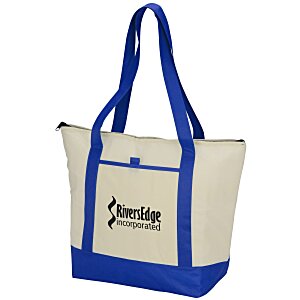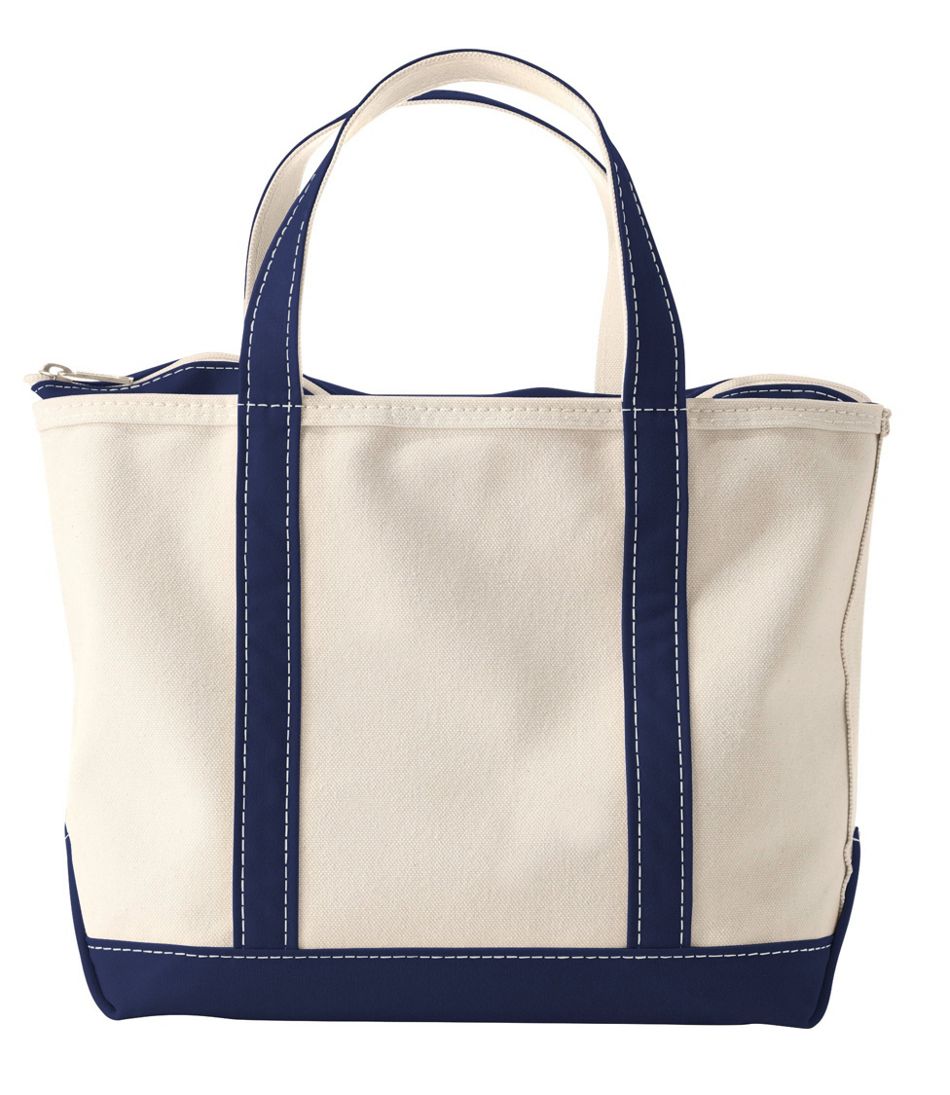A Classic Bag at the Center of a Legal Storm
L.L.Bean, the iconic Maine-based outdoor retailer, has filed a trademark infringement lawsuit against 4imprint, a Wisconsin promotional products company. At the heart of the legal battle is L.L.Bean’s beloved “Boat and Tote” bag, a product the company has sold since 1944 and one that has become deeply woven into American culture. L.L.Bean claims that 4imprint’s similar canvas tote, marketed under “Boat Tote,” crosses the line into trademark infringement.
(Image from: https://www.llbean.com/llb/shop/37037?page=boat-and-tote-bag-zip-top)
What’s the Issue?
According to L.L.Bean’s lawsuit, filed in early April 2025 in the U.S. District Court in Maine, 4imprint’s use of the name “Boat Tote” and the design of its canvas bags are “confusingly similar” to L.L.Bean’s registered “Boat and Tote” mark. According to L.L. Bean, “Boat and Tote” generates more than $10 million in annual revenue. According to reports, 4imprint declined to cease using the “Boat Tote” name after requests from L.L. Bean. L.L.Bean alleges that 4imprint is attempting to capitalize on the reputation its company has built over the past 80 years, which could dilute its brand’s distinctiveness and value.
Claims and Legal Grounds
The legal complaint accuses 4imprint of trademark infringement, false designation of origin, unfair competition, and trademark dilution. In its complaint, L.L. Bean says the “Boat Tote” advertised by 4imprint is “confusingly similar” to its iconic “Boat and Tote” mark. For something to be confusingly similar, two marks, such as brand names, logos, or product designs, are so alike that consumers may mistakenly believe they come from the same source. “Confusingly similar” does not require the marks to be identical; even subtle similarities in appearance, sound, or meaning can confuse consumers. Courts look at factors like how distinctive the original mark is, how similar the goods or services are, and whether there’s evidence of consumer confusion. If a mark is deemed confusingly similar, it can be grounds for trademark infringement.
According to the complaint, “Boat Tote” is nearly identical to L.L. Bean’s registered “Boat and Tote” mark. The bag in question also shares similar visual features, like the boxy canvas structure with contrasting handles, resembling L.L. Bean’s iconic design. Both companies sell customizable canvas tote bags, which increases the risk that consumers might assume 4imprint’s product is affiliated with or endorsed by L.L. Bean. L.L.Bean asserts that 4imprint’s marketing tactics are misleading to consumers and may cause them to believe that 4imprint is affiliated with or endorsed by L.L.Bean.

(Image from: https://www.4imprint.com/product/130638/Boat-Tote-Cooler)
What L.L.Bean Wants
L.L.Bean is seeking a permanent injunction to stop 4imprint from using the “Boat Tote” name or selling similar-looking products. Additionally, they are asking for monetary damages and the destruction of all infringing goods and promotional materials. The company emphasized its long-standing investment in building the identity and consumer trust behind the “Boat and Tote.”
Why This Matters
This lawsuit is a prime example of iconic brands’ challenges in protecting their intellectual property in crowded and competitive markets. For the court, there are broader questions to be answered about the line between inspiration and imitation, especially regarding widely used items like canvas tote bags. For companies in the promotional products space, the outcome of this case could set a meaningful precedent around how closely you can mirror a popular product before it crosses into infringement territory. Whether this case settles or goes to trial, it highlights the power of a brand and the lengths companies will go to protect it.

